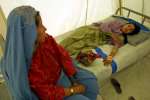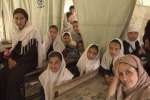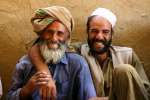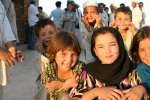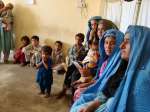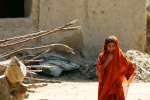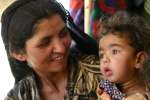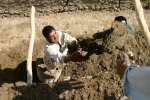Afghan Conference: Delegates urged to support new solutions strategy
News Stories, 2 May 2012
GENEVA, May 2 (UNHCR) – A conference on Afghan refugees opened here on Wednesday with a call by UN High Commissioner for Refugees António Guterres for the international community to throw its full weight behind a new "solutions strategy" drawn up between Iran, Pakistan, Afghanistan and UNHCR.
The strategy, which is being presented at the two-day conference for endorsement, aims both at preserving asylum space for Afghan refugees in neighbouring countries over the coming three years and beyond, and at supporting sustainable reintegration for those Afghans who return home.
"The strategy and the process that created it are indeed very good news. And in today's world we are badly in need of good news," said Guterres in his opening address, noting the proliferation of conflicts and displacement in 2011 across northern Africa and some Arab countries.
"When three countries join in a common vision reflecting unified strategy and political will it deserves our recognition and support. I urge this conference to generate the ideas and means to reflect the international community's solidarity with the Afghan refugees and the hosting communities that share their resources with them."
Afghan refugees constitute the largest and longest-standing refugee situation in UNHCR's history. Despite the return of some 5.7 million Afghans to their homeland since 2002, there are still around 2 million Afghans in Pakistan and close to 1 million in Iran. And in recent years, return rates have slowed. In 2011, about 70,000 Afghan refugees returned home.
The "solutions strategy" contains a package of measures aimed at supporting refugees, and tailored towards the specific needs of each of the three countries involved.
In Afghanistan, the focus is on supporting reintegration. By way of example, 49 pilot sites in 19 high-return provinces have been identified for support with shelter, social services, employment and food security. Endorsement has been secured through consultations with shuras (traditional councils), local leaders and government officials. And development initiatives will be tackled by national and other actors with the involvement of the private sector.
In Iran, efforts will go towards supporting returns to Afghanistan as well as help in ensuring that their returns are sustainable. This will include, for example, vocational training for refugees. Support is also envisaged for a recent health insurance programme that aims at providing universal health coverage to refugees. In Pakistan, the focus is geared more towards voluntary repatriation and helping the host communities in which refugees live.
In his speech, Guterres acknowledged difficult realities in Afghanistan, pointing out that creating the conditions for the voluntary and sustainable return lies outside the scope of humanitarian actors alone. But he said it was nonetheless essential to create conditions that have a tangible impact on returnees and their communities.
"We are in an important period of transition in Afghanistan that is characterized by uncertainty," said Guterres. "Afghan refugees have shown that they 'vote with their feet' when conditions for return are conducive, they have always wished to go home. Therefore we have a collective responsibility to support and facilitate their legitimate aspirations."
Implementation of the solutions strategy will cost an estimated US$1.9 billion, and while the meeting in Geneva is not a donor conference, support from donors will nonetheless be key to realizing it.
Full text of High Commissioner Guterres' speech, and addresses by other speakers












